creating revolutions t-shirts
COURSE: Creating Revolutions
by ANONYMOUS
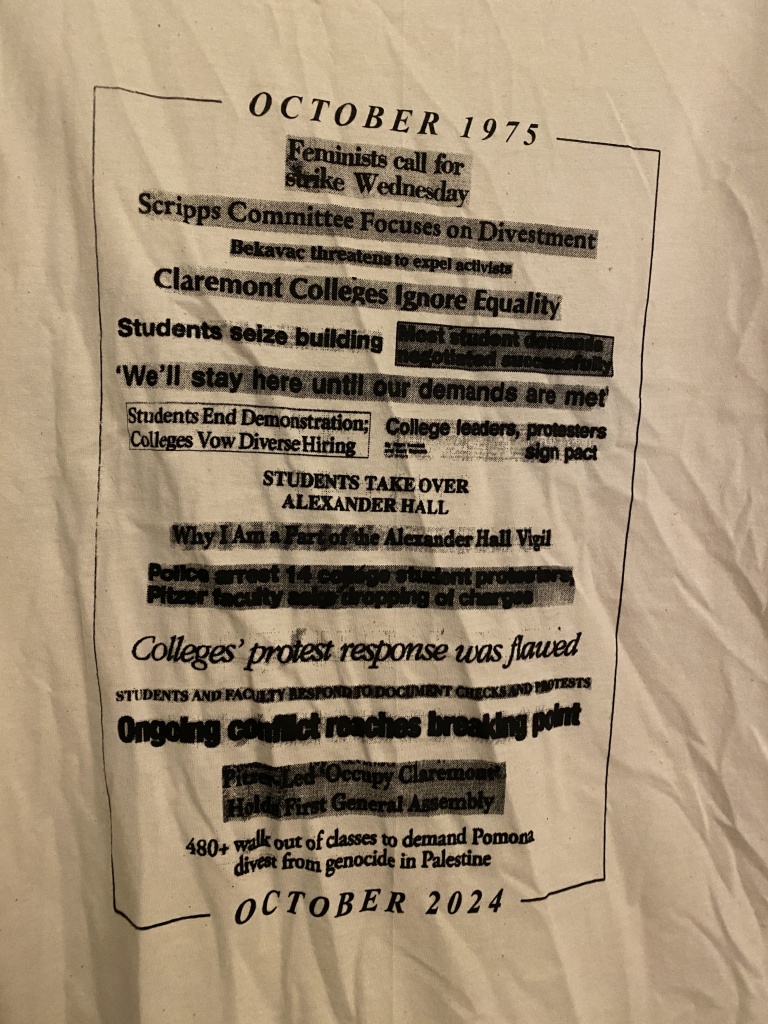
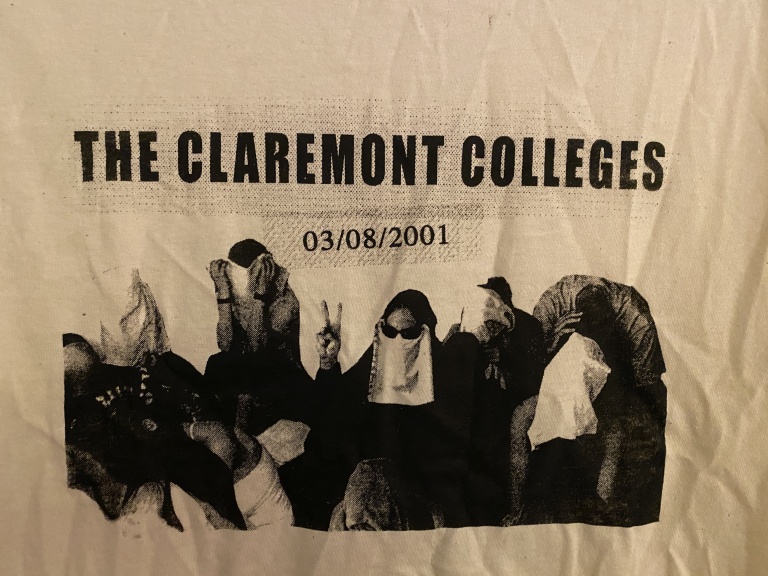
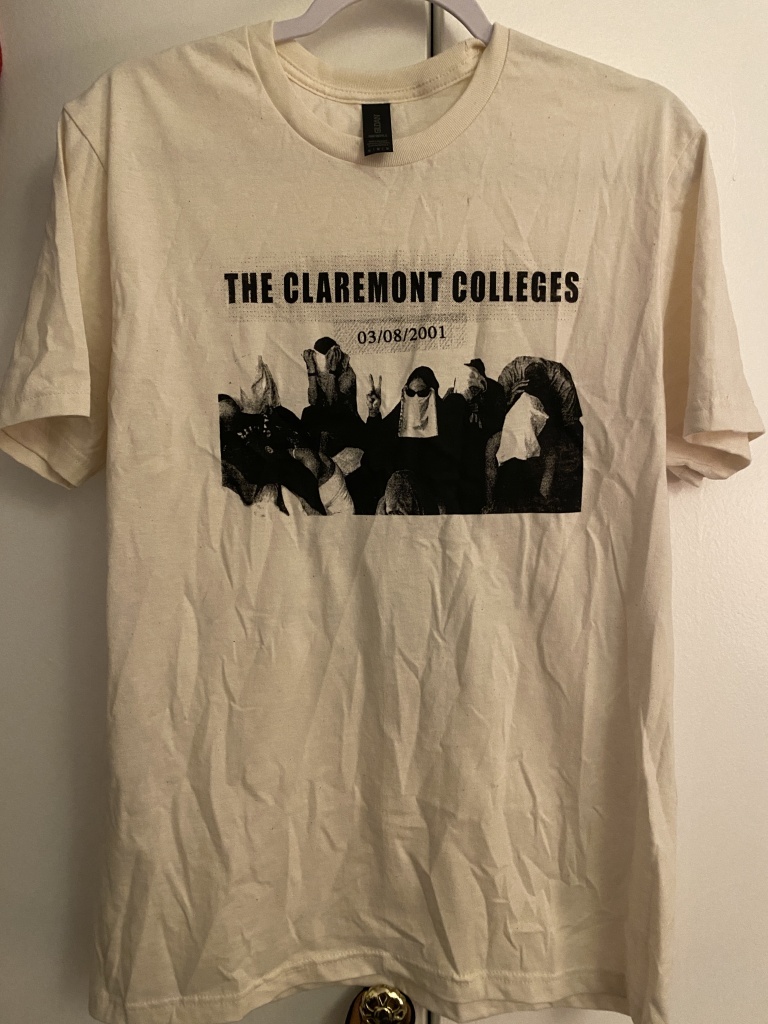
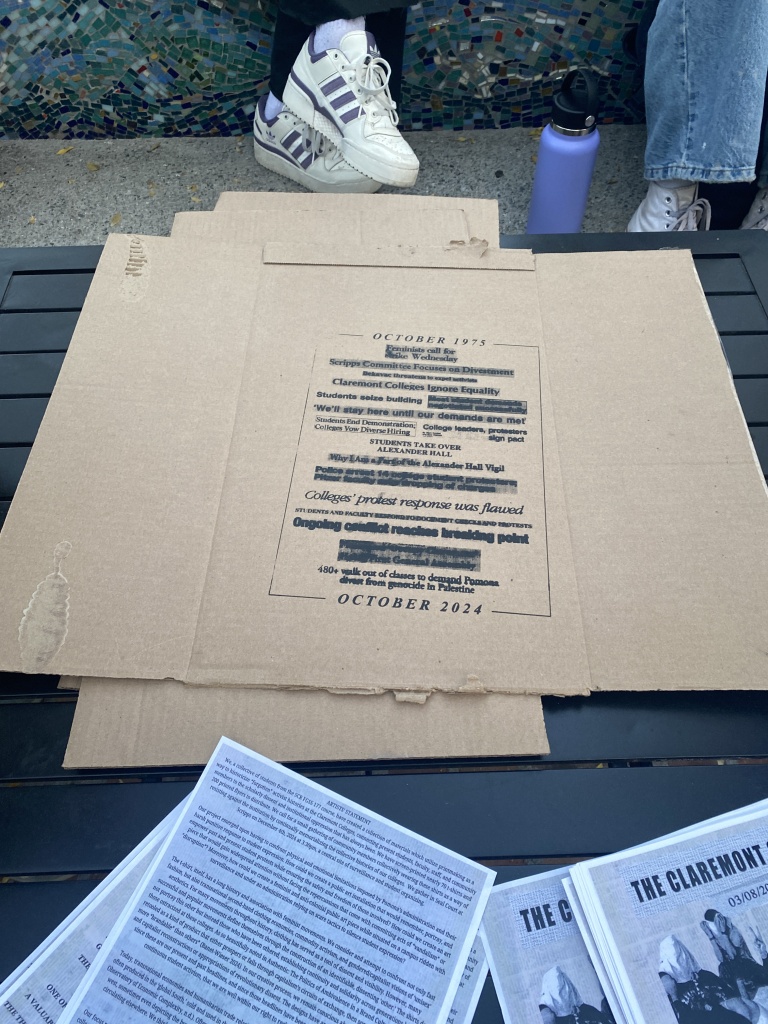
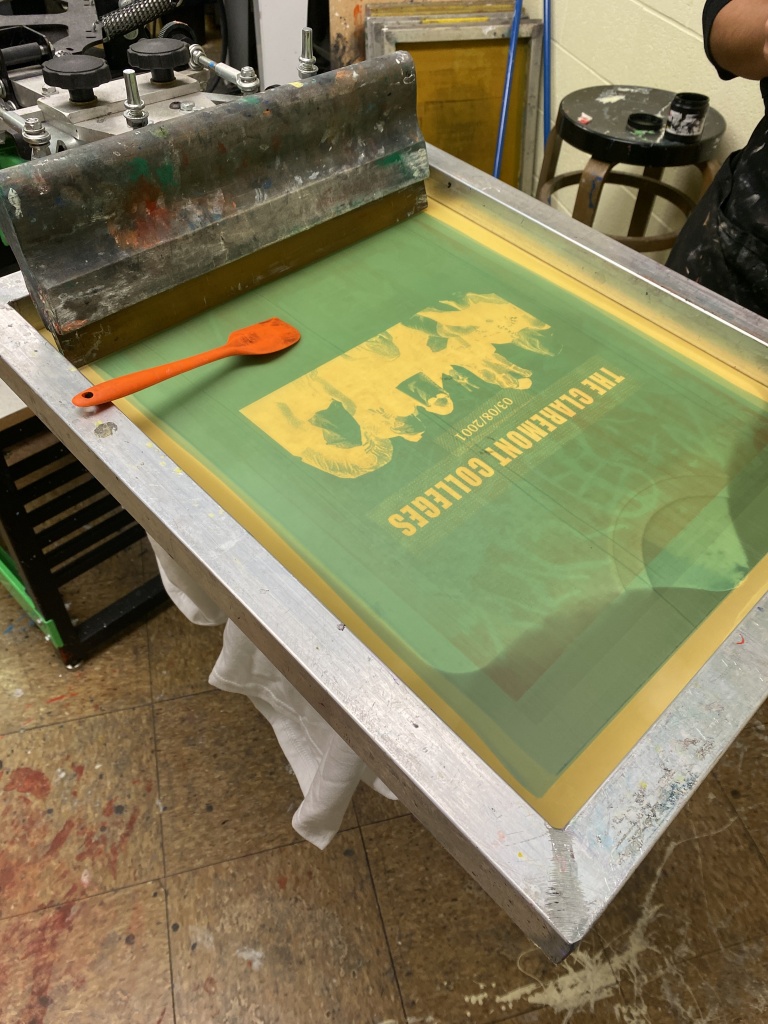
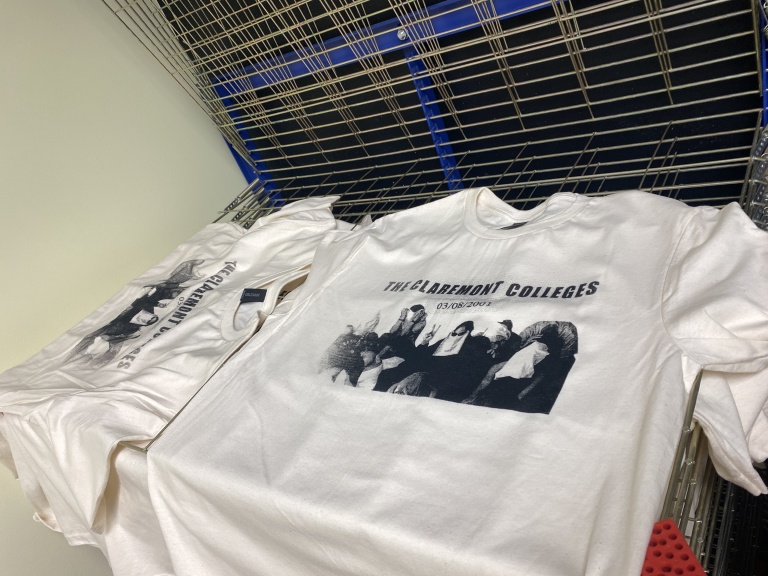
FROM THE STUDENTS
We created a collection of 70 T-shirts and 200 printed flyers using printmaking to historicize forgotten activist histories at the Claremont Colleges, connecting students, faculty, staff, and community members to ongoing scholarly dissent and institutional oppression. The shirts feature archival images of student demonstrations, dates, locations, and headlines documenting dissent, while the flyers include educational content and a collective artists’ statement. On December 4th, we gathered in Seal Court wearing and distributing these shirts to collectively memorialize and resist institutional erasure. We ran out of shirts within minutes of distribution. Our project arises from confronting punitive administrative responses to student expression. It reimagines public art as feminist and anti-colonial, balancing visibility and safety under surveillance. T-shirts, historically tied to dissent, serve as wearable art fostering solidarity and challenging capitalist commodification of activism. Our work also reflects on global clothing economies and the colonial dynamics embedded in our campus structures. We resist the appropriation of movements for institutional branding. The designs draw from student archives to reclaim our colleges’ histories without exploiting them for institutional gain. Through collective creation, we center(ed) continuity, solidarity, and intentional production that resists both exploitation and colonial paradigms.

